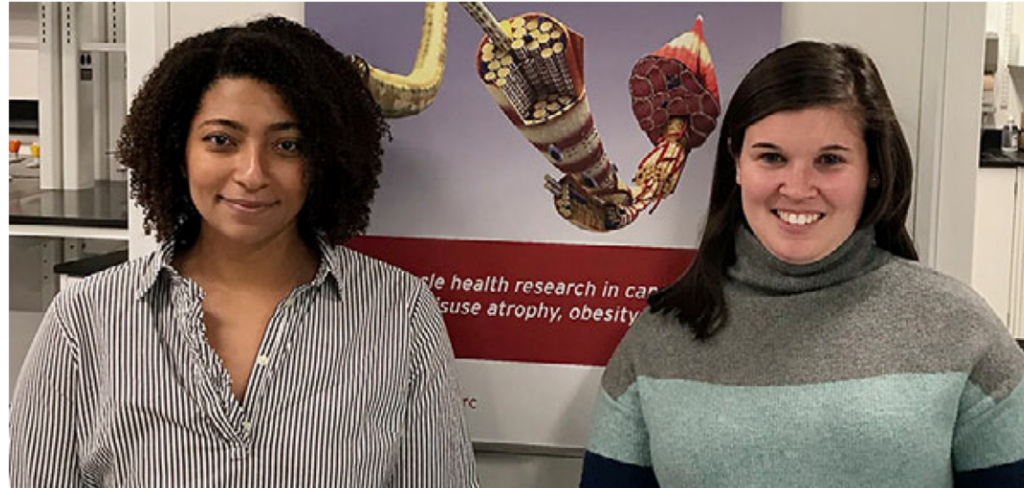A team of researchers at York University will work to develop novel therapies that treat muscle weakness in Duchenne muscular dystrophy (DMD).

Faculty of Health Associate Professor Christopher Perry, building on the research of students Meghan Hughes, Sofhia Ramos and Catherine Bellissimo, will lead the project out of his lab at the University.
DMD is a genetic disease that causes severe weakness in the limbs, diaphragm and heart leading to immobility as well as breathing and heart problems with no cure and limited treatment options. While current standard of care prescribes potent immunosuppressants to lower inflammation in muscles, additional therapies are required given the lifespan of those affected can be reduced by 50 per cent or more, and people afflicted with this disease eventually require multiple assistive devices including ventilators and mobility aids in addition to management of heart dysfunction.
Perry’s lab was granted $100,000 in funding from Muscular Dystrophy Canada (MDC), as well as $195,000 in additional funding from MITACS Accelerate. The combined award provides a unique opportunity to focus on research on therapy development as well as direct engagement with neuromuscular disease communities and Muscular Dystrophy Canada’s activities that support advocacy, awareness and education to key stakeholders and audiences.
“Our lab is very grateful for the support from Muscular Dystrophy Canada,” said Perry. “The funding is a result of MDC’s constant effort to raise funds for neuromuscular disease research, and the selfless contributions from donors.”


The award from Muscular Dystrophy Canada was provided through the Translational Science Seed Grant as part of its Neuromuscular Disease Research Grant Program. Muscular Dystrophy Canada provides Programs and Services, Research and Advocacy to support people affected by neuromuscular disorders. The grant focuses on testing novel drugs designed to selectively target and improve the function of mitochondria inside muscle cells.
Mitochondria are special structures called ‘organelles’ that extract energy from the food we eat in a way that powers muscle contraction.
“Research from our lab and others has shown that mitochondria do not generate energy as efficiently in muscles affected by Duchenne muscular dystrophy. With this funding from Muscular Dystrophy Canada, we will be able to test these drugs in combination with other existing and emerging therapies to see if a combination or ‘cocktail’ approach is even more effective at preserving muscle strength in this debilitating disease. Our goal is to also improve these mitochondrial enhancing therapies to make them more effective,” said Perry.
MITACS Accelerate is a federal funding program that provides financial support for trainees who are engaged with a not-for-profit partner as part of their research project.
“Combining both grants allows trainees in our lab to directly engage Muscular Dystrophy Canada as well as participate in the planning and development of research news communiques and present in education forums targeted to the neuromuscular disease community that outlines research progress in neuromuscular disease, including their own theses results,” said Perry.
New trainees on this project will also: co-plan and write advocacy news that outlines advances in new initiatives and support programs in Canada; and, co-create “Five Things to Know” style papers for neuromuscular disorders as part of a Knowledge Translation Working Group.
This grant is supported by collaborations with: Dr. Thomas Hawke at McMaster University, a world-renowned muscle physiologist (co-applicant); Dr. Mark Tarnopolsky, director of the Neuromuscular Disease and Neurometabolic Disorders clinic at McMaster University Medical Centre; and pharmaceutical industry partners.


